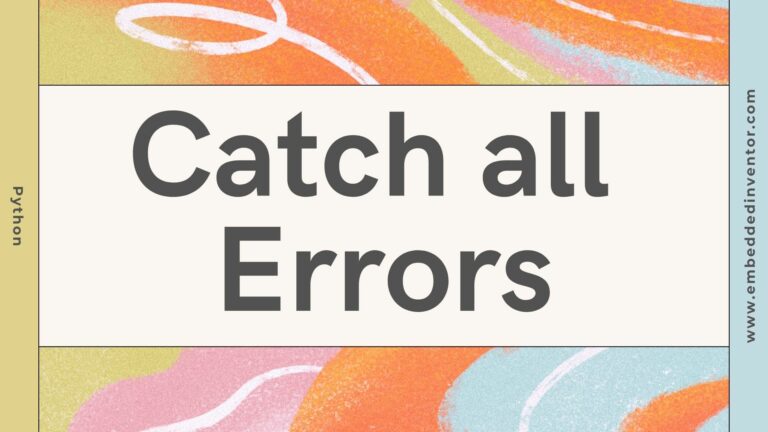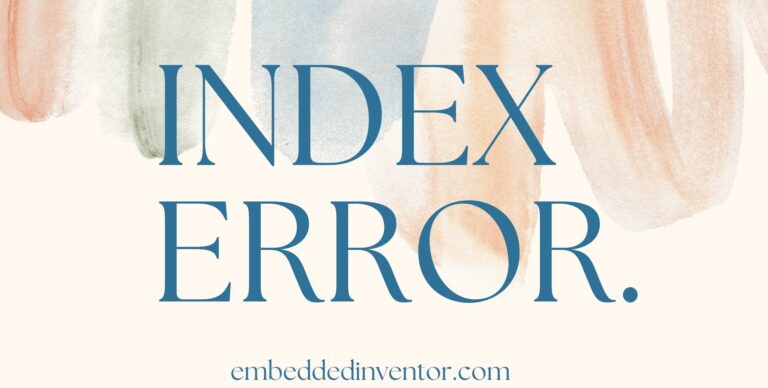Python: Catch All Errors
In this article, we’ll study how to catch all errors in Python. Additionally, we will also learn how to catch just a single error. To make us understand better, we’ll also take a look at the exception hierarchy. Without further ado, let’s begin! Catching all errors using “except:” If you’re looking to catch all errors … Read more










